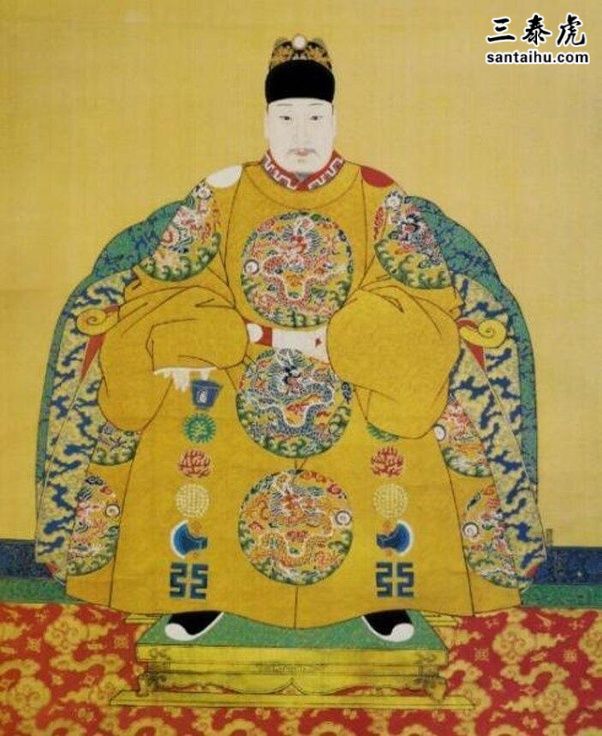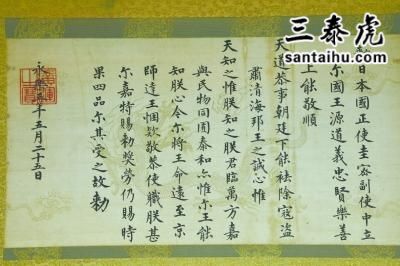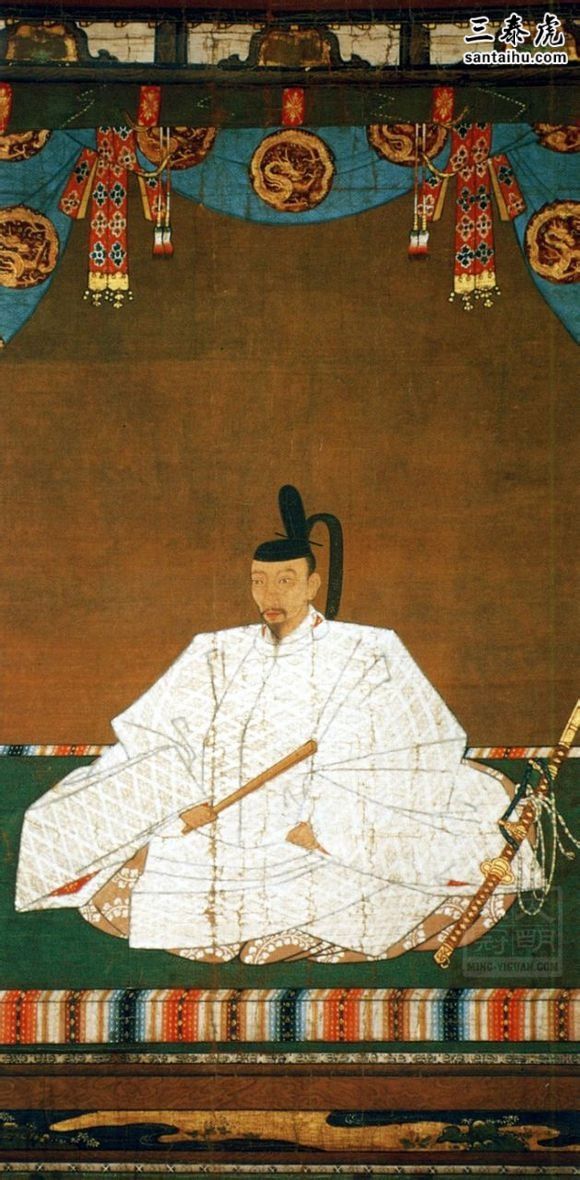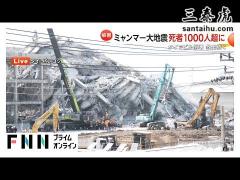Who know world history? Why is it that Japan's army has always been stronger than China's, but their territory seems to have always been much smaller than China's?
谁了解世界历史呢?一直以来日本的军队似乎总是比中国的军队强大,为什么他们的领土却好像一直都比中国的小很多呢?
以下是Quora读者的评论:
Kishor Rajmohan
Why because Japan is an island and China is part of the mainland. Japanese resides in Japanese islands and predominantly han ethnicities are in mainland China. Japan was aware about their constricted Geographies that is why they had initiated expeditions for expansions.
为什么呢?因为日本是一个岛国,而中国是大陆。日本人居住在日本诸岛,而中国大陆上主要是汉族人。日本深知自身地理条件的局限,正因如此,他们才发起了对外扩张的行动。
Jonathan Abarbanel
It’s BECAUSE Japan is so much smaller, therefore able to achieve a consolidated, centralized state and government long before China could do so. Even into the 20th century, China had the problem of warlords defying centralized authority, let alone break-away kingdoms over the millennia. Japan also involved with an intensely hierarchical and discipline feudal system, and China did not.
这是因为日本的规模要小得多,因此能够在远比中国早得多的时候就建立起一个统一且中央的国家和政府。即便到了20世纪,中国仍存在军阀对抗中央权威的问题,更不用说在过去的数千年里还出现过一些割据政权了。此外,日本有着严格的等级制度和纪律严明的封建体系,而中国并不具备这样的封建体系。
Jason.kete
Your assumption is wrong from the begng. Is the Japanese army always stronger than the Chinese army? In thousands of years of history, when civilization and physical regimes were already born in China, Japan did not even exst at all.
The time when the Japanese army was truly stronger than the Chinese army may have lasted at most half a century (1890s-1940s). After World War II, Japan has become a US military base and is not a real sovereign country. It is even more meaningless to discuss this topic.
你的假设从一开始就是错误的。日本军队一直都比中国军队强大吗?在数千年的历史中,当中国的文明和政权体系早已诞生的时候,日本甚至根本就不存在。
日本军队真正强于中国军队的时期,最多可能持续了半个世纪(19世纪90年代到20世纪40年代)。第二次世界大战之后,日本变成了美国的军事基地,它已不是一个真正意义上的主权国家。在这种情况下,再讨论这个话题就更没有意义了。
From the Qin Dynasty (2.1 million square kilometers),
the first truly unified China, to the Han Dynasty, in Dynasty, Three Kingdoms, Sui Dynasty, Tang Dynasty, Song Dynasty, Ming Dynasty, etc., the land occupied by the Chinese is much larger than the land owned by the Japanese (about 200,000-300,000 square kilometers). (Here we first exclude foreign dynasties such as the Mongols and Manchus.) You will find that China is still a country far larger than Japan at any time. The Chinese in the Tang Dynasty easily defeated the Japanese navy, and the Ming Dynasty also repelled Toyotomi Hideyoshi's army, and the emperor canonized Toyotomi Hideyoshi as the King of Japan.
It was not until the late period of Manchu control (if the Qing dynasty can be considered the real China, of course) that the Japanese military became much stronger



从中国第一个真正实现统一的朝代秦朝(疆域面积约210万平方公里),到汉朝、晋朝、三国时期、隋朝、唐朝、宋朝、明朝等等,中国所占据的土地面积都远远大于日本所拥有的土地面积(约20万至30万平方公里)。(这里我们先排除蒙古族和满族等外族建立的朝代)。你会发现,在任何时期,中国都是一个比日本大得多的国家。唐朝时期的中国人轻松击败了日本海军,明朝也成功击退了丰臣秀吉的军队,而且明朝皇帝还册封丰臣秀吉为日本国王。
直到满族统治的后期,日本的军事力量才变得强大许多。
Omar Khokhar
Japan is island nation just like England and usa .NO LAND MASS BORDERS SO THEY ARE NATURALLY PROTECTED
culture and life style of looting plundering over nation is other factor.
日本是一个像英国和美国一样的岛国。日本没有陆地边界接壤,天然地受到了保护。
天上就喜欢对其他国家进行掠夺抢劫的文化和生活方式
Dan T.
Japan’s military being stronger than China’s was a consequence of a very specific set of circumstances that occurred around the turn of the last century. For the overwhelming majority of their respective histories, China’s military power far exceeded that of Japan. Japan becoming an industrial power in the late 1800s and early 1900s gave them the tools to be a great power militarily, while China lagged behind in industrialization. This is the relatively brief window, historically speaking, when Japan had a stronger military than China.
日本的军事力量曾强于中国,这是上世纪之交前后一系列特定情况所导致的结果。在两国各自历史的绝大多数时期里,中国的军事力量都远超日本。
日本在19世纪末20世纪初成为了一个工业强国,拥有了在军事上成为强国的资本,而当时中国在工业化方面却落后了。
从历史角度来看,这只是一段相对短暂的时期,在这段时期里日本的军事力量强于中国。
Andrew Winter
Good question.
Last part first. Japanese Territorial size, not achieved by conquest, reached a peak right after World War One. As one of the Allied Nations Japan was granted reparations at the end of the War. Those were all the Colonial Holdings of the German Empire in Asia. Germany had a massive colonial area in China, and owned the Marshall Islands. So that was huge, and almost as big as China.
In 1937 the Sino-Japanese War broke out, (How is still a matter of mystery), and Japan went on to conquer all of Manchuria, which they had not had prior to that, and most of Coastal China for some hundreds of miles inland, plus the Island of Hainan. At that particular moment, Japan owned more of China than China did. So it was not the case that Japan was always smaller than China.
First part last. Japan’s military was not always stronger than China’s. Historically up to the mid 1800s Japan was not that strong militarily and had never been able to “project force” beyond the Islands where Japanese was the spoken language.
问得好。日本的领土面积并非通过征服得来,其领土面积在第一次世界大战刚结束时达到了顶峰。作为协约国之一,日本在战争结束后获得了赔款和殖民地。这些殖民地都是德意志帝国在亚洲的殖民属地。德国曾在中国拥有大片殖民区域,并且还拥有马绍尔群岛。所以日本当时获得的殖民地面积非常大,几乎和中国部分区域一样大。
1937年,中日战争爆发了,随后日本继续征服了整个满洲地区(在那之前他们并未占领此地),以及中国沿海地区深入内陆数百英里的大部分区域,还包括海南岛。在那个特定时期,日本占领的中国领土比当时中国实际控制的还要多。所以,并非日本一直都比中国小。
另外,日本的军事力量并非一直强于中国。从历史上看,直到19世纪中期,日本的军事力量都不算强大,而且其也从未有能力将军事力量投射到日本列岛之外
Mark Ericson
Japan’s army has not always been stronger than China’s army. The Japanese invasions of Korea in the 16th century were stopped by the Ming army who came to Korea’s rescue. In the late 19th century, Japan’s army and navy were stronger because Japan adopted Western modern military technology faster and better than China. Again, Japan invaded China in 1937, but was never able to completely conquer and control China before Japan surrendered in 1945. Chinese resistance, both the Nationalists and the Co unists, was effective to prevent Japan from succeeding.
日本军队并非一直强于中国军队。16世纪日本入侵朝鲜时,前来救援朝鲜的明朝军队成功阻止了日本的侵略。19世纪后期,日本的陆军和海军变得更强大,比中国更快、更好地采用了西方现代军事技术。
同样,日本在1937年入侵中国,但在1945年日本投降之前,始终未能完全征服和控制中国。中国的抵抗力量,包括国民党和,都有效地阻止了日本的侵略图谋得逞。
Sidney Kan
Japan always has less resources, weaker culture, worse knowhow, fewer people. There was an exception when Qing dynasty and Republic of China were weak. But Chinese were still strong enough to defend.
日本向来资源匮乏,文化底蕴相对薄弱,专业技能也较差,人口数量也较少。只有在清朝和中华民国国力衰弱的时期是个例外。但即便如此,中国人仍然有足够的力量保卫国家。
Emi1
Japan is a set of distant islands, and China was not interested in such remote islanders very much. Also, Chinese battles many centuries ago were land battles with many battlehorses, not with ships. On the sea waters, the Japanese had advantages over land fighters.
日本是由一系列远离(中国)的岛屿组成的国家,而中国过去对这些地处偏远的岛民并没有太大兴趣。而且,许多世纪以前中国所经历的战争大多是有众多战马参与的陆战,而不是海战。在海上,相比陆战,日本人有着一定的优势。
Tao Deng
You read history with your ass. Japan has invaded China countless times in the past two thousand years, and except for the victory in 1894, it has failed in all other cases. How is Japan stronger than China?
你根本就是在胡乱解读历史。在过去两千年里,日本曾无数次侵略中国,除了1894年那次得逞之外,其他侵略行动均以失败告终。日本又怎么能比中国强大呢?
Patrick
When Japan became a world power in the early 20th century their army was larger, better trained, better equipped and had been the first far eastern military to defeat a European power. China was a land ruled by warlords and the Central government was weak. The Japanese were United under strong leadership. They had a single set or goals and achieved them.
在20世纪初,日本成为一个世界强国,军队规模更庞大,训练更为精良,装备也更加先进,并且日本军队还是首个击败欧洲强国的远东军事力量。当时的中国是一个由军阀统治的国家,中央政府十分软弱。而日本人在强有力的领导下团结一致。他们有着一套统一的目标,并且实现了这些目标。
Cassandra J
To say “Japan's army has always been stronger than China's” is factually incorrect.
Japan only started to industrialize (and militarize) during the Meiji Resrtoration in the latter part of the 19th century, while China remained an agricultural and feudal country without a modern military. Before that, China was militarily stronger than Japan.
So, the relative size of the two countries is irrelevant. What counts is their stage of development - with China not starting until much later than Japan, effectively only after WW2.
说“日本军队一直比中国军队强大”,这个说法是不正确的。
日本只是在19世纪后期的明治维新期间才开始工业化(以及军事化)进程,而当时中国仍是一个没有现代化军事力量的农业和封建国家。在那之前,中国在军事上是强于日本的。
所以,两国国土面积的相对大小与此无关。关键在于它们的发展阶段——中国开始现代化进程的时间要比日本晚得多,实际上是在第二次世界大战之后才开始的。
Graham B
completely wrong.
the Japanese army was only big in the 1930s and 1940s . at that time their empire was bigger than China.
At all other times their army has been small and there has p
Also Japan is far smaller than China. Naturally it defaults to a smaller territory
完全错误。
日本军队只是在20世纪30年代和40年代规模庞大。在那个时候,他们的帝国版图比中国的更大。
在其他所有时期,日本军队的规模一直都很小
此外,日本的国土面积远小于中国。自然而然地,它的领土面积也就默认比中国小了。
JOHn1988
If you look back at history, the so-called China was always stronger than the tiny island nation of Japan. China was undoubtedly the strongest power in East Asia, both militarily and softly, for most of the time. So the idea that the Japanese military was always stronger than the Chinese military is ridiculous in itself, because for most of the time, it was no match for the Chinese military. That changed after the Meiji Restoration.
回顾历史,中国在过去一直比日本这个弹丸岛国更强大。在大多数时间里,无论是在军事方面还是在软实力方面,中国无疑都是东亚最强大的国家。所以,那种认为日本军事力量一直强于中国军事力量的观点本身就是荒谬的,因为在大多数时间里,日本的军事力量根本无法与中国的军事力量相抗衡。这种情况在明治维新之后才发生了变化。
Joydip Choudhury
It's not the dog in the fight but the fight in the dog. It's not the altitude but the attitude.
Japanese are a martial people, while Chinese are a mercantile people.
Japan had also started modernising and industrialising as early as 1850s, when the Chinese century of humiliation was in progress. So they had a massive headstart. Chinese century of humiliation began in 1839, a period which was to be marked by exploitation of China by European forces, Chinese isolation from the outside world and Chinese underdevelopment and poverty. Meanwhile, Japan was learning all needful lessons from the Chinese humiliation and engaged itself in modernisation, reforms, building a strong economy and military. As the century of humiliation progressed and China regressed while Japan progressed.
Japan also possessed the glue of ideology, stuff that is crucial for self upliftment and justifying outward expansion. For instance, the second Japanese invasion of China was officially launched in 1937 (though it started in 1931) as a manifestation of the Hakko ichiu or the divine right of the Japanese people to unify the eight corners of the world. During WW2, the Japanese sought to enforce the principles of the alrrady envisioned Greater East Asia Co-Prosperity Sphere, a Japanese project to liberate Asia from Western powers and imperialism. This was a unifying message that were received positively by many Asian nations. Compare China, which is also in a good place today. It has issues with all of its neighbours, nobody has any trust or faith in the Chinese and if China got into any trouble today, almost all neighbouring nations would turn against China. Big difference.
日本人是尚武的民族,而中国人是重商的民族。
早在19世纪50年代,当中国正处于“百年屈辱”时期时,日本就已经开始了现代化和工业化进程。所以他们领先了一大步。中国的“百年屈辱”始于1839年,在这一时期,中国遭到欧洲列强的剥削,与外界隔绝,发展滞后且贫穷。与此同时,日本从中国的屈辱中吸取了教训,并致力于实现现代化、进行改革、打造强大的经济和军事力量。随着“百年屈辱”的延续,中国不断衰退,而日本却在不断进步。
日本还拥有意识形态方面的凝聚力,这对于自我提升和为对外扩张寻找正当理由至关重要。例如,日本第二次侵华战争于1937年正式发动(尽管实际上从1931年就开始了),这是“八纮一宇”思想的体现,即宣称日本人民拥有统一世界八方的神授权利。在第二次世界大战期间,日本人试图推行早已设想好的“大东亚共荣圈”原则,这是日本为了将亚洲从西方列强和帝国主义手中解放出来的一个计划。这是一个具有凝聚力的口号,受到了许多亚洲国家的积极响应。
再看看中国,如今虽然发展得不错。但中国与邻国都存在纠纷,没有人信任中国人,如果今天陷入麻烦,几乎所有邻国都会与中国为敌。这就是差异。
此文由 三泰虎 编辑,未经允许不得转载!:首页 > 资讯 » 日本的军队似乎总是比中国军队强大,为什么他们领土却好像一直都比中国的小很多呢
 日本网民热议:中国神舟二十号将三名航天员送至“天宫”空间站
日本网民热议:中国神舟二十号将三名航天员送至“天宫”空间站 越南被统治了一千年,在法国和日本统治期间从未投降,而美国一加征关税,为何第一个秒跪呢
越南被统治了一千年,在法国和日本统治期间从未投降,而美国一加征关税,为何第一个秒跪呢 速度超过日本,以350公里的时速疾驰,日本网民热议中国高铁,从武汉到北京1000公里
速度超过日本,以350公里的时速疾驰,日本网民热议中国高铁,从武汉到北京1000公里 中国的军事力量能够击败日本吗
中国的军事力量能够击败日本吗 日本网民热议:中国对美国加征125%关税,日记者走访美国洛杉矶的布料批发市场,影响开始在当地蔓延
日本网民热议:中国对美国加征125%关税,日记者走访美国洛杉矶的布料批发市场,影响开始在当地蔓延 日媒报道缅甸大地震死亡人数超1000人,2300余人受伤,日本网民抹黑中国制造
日媒报道缅甸大地震死亡人数超1000人,2300余人受伤,日本网民抹黑中国制造 越南非常喜欢韩国和日本,为什么越南不效仿日韩文化,反而还极力模仿中国文化的方方面面呢
越南非常喜欢韩国和日本,为什么越南不效仿日韩文化,反而还极力模仿中国文化的方方面面呢 美媒:中国、日本和韩国达成共识,共同推动和平与合作
美媒:中国、日本和韩国达成共识,共同推动和平与合作